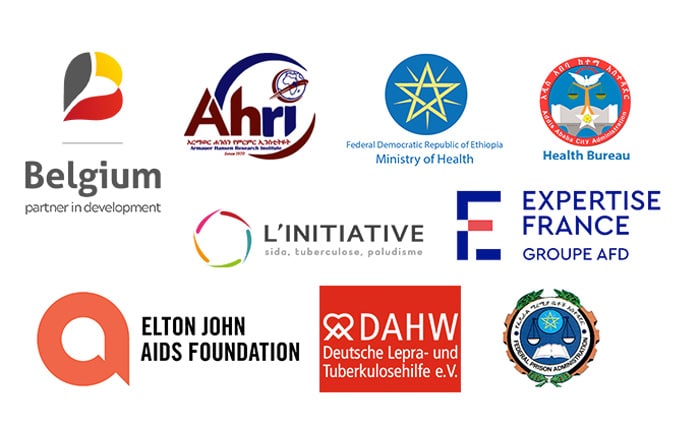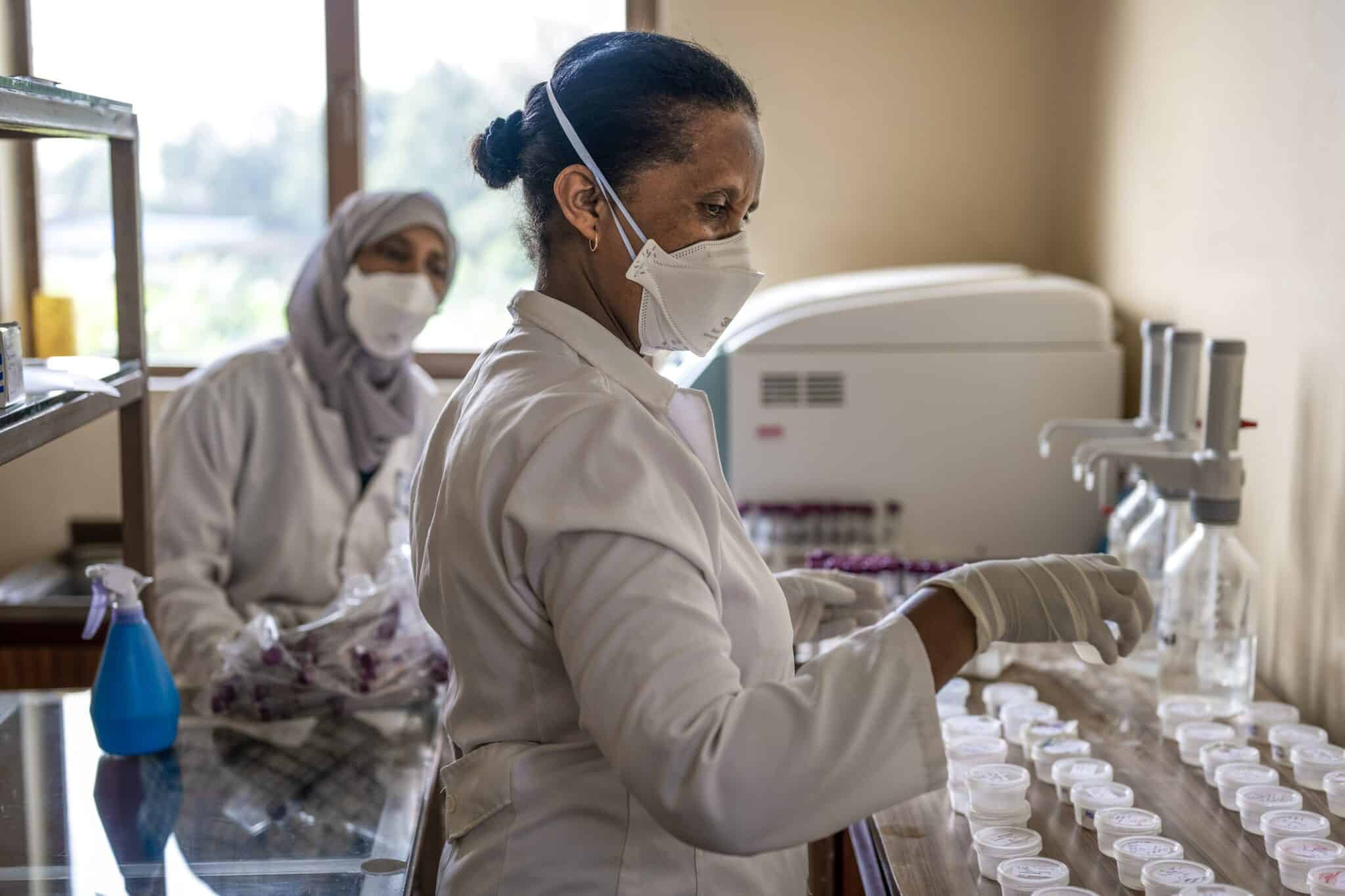On International Women’s Day, 8 March 2024, we are turning our attention to some of the women working in APOPO’s research project in Addis Ababa, Ethiopia in partnership with Armauer Hansen Research Institute (AHRI). This is where our trained African giant pouched rats are used to speed up detecting tuberculosis (TB). This innovative approach, which makes use of the acute sense of smell of ourHeroRATs, is an efficient second-line method of TB detection.
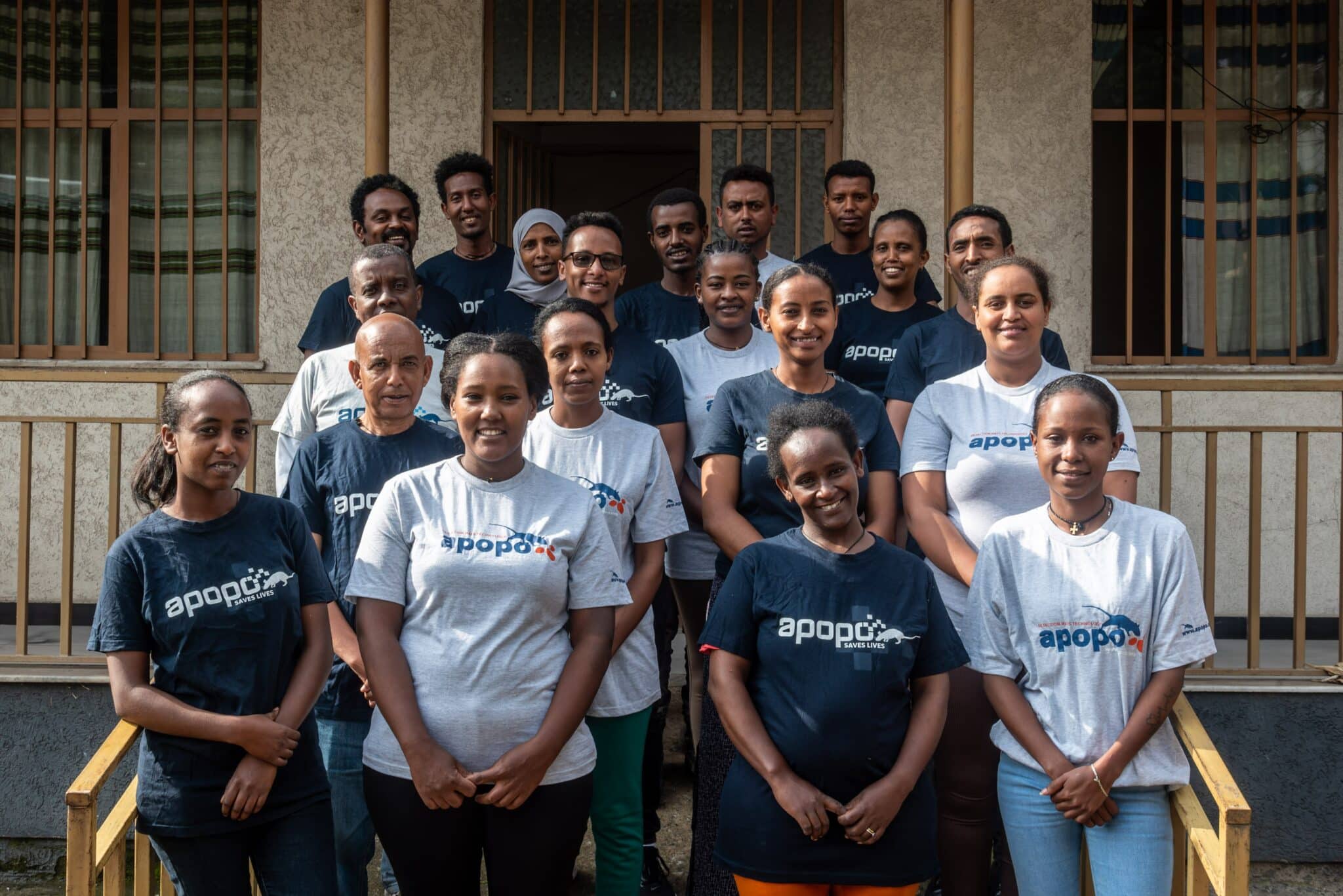
Our team of rats, with the crucial assistance of our staff, detect the odor of TB in human sputum samples from patients who have tested negative for TB in our partner clinics. This odor is made up of a specific blend of volatile organic compounds which the rats can recognize. If samples are indicated by the rats, APOPO confirms them in our lab before notifying the clinics so the patients can begin treatment.
APOPO’s TB detection project in Ethiopia, benefits from the diligence and expertise of women in various roles, from rat handlers to lab technicians and researchers, highlighting the critical contribution of female professionals to public health advancements and the fight against TB. APOPO hopes to encourage even more women to work in this field and welcomes female applicants for every APOPO job vacancy.
Mihret: HeroRAT Handler
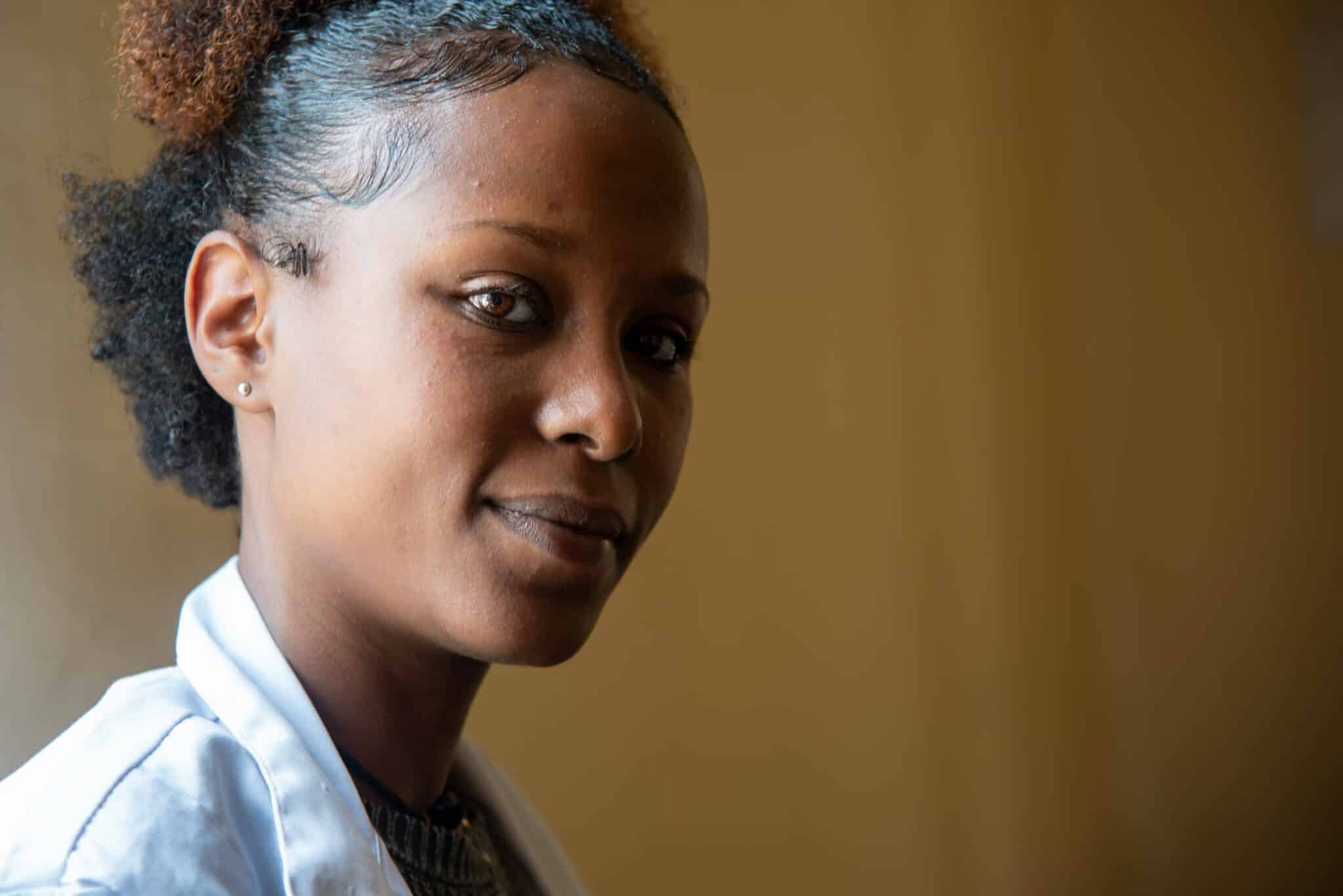
Mihret, a rat handler at APOPO in Ethiopia, has spent 19 months contributing to the organization’s mission of protecting people with innovative solutions using trained rats. Transitioning from the hospitality industry to a more scientific role, Mihret was drawn to APOPO by the unique nature of its work, which she discovered online. In her daily tasks, which include weighing rats, preparing their food, and conducting TB evaluation sessions with the rats, Mihret sees the intrinsic strengths of being a woman — patience, strength, and long-term thinking — as crucial to her success.
Mihret explains she has not experienced any gender-specific challenges in her role, saying that her smooth integration is due to the supportive environment at APOPO. She believes, “Being a woman is a strength by itself,” and adds that women can bring great adaptability and nuanced communication skills to the workplace. Her pride in her work is clear when she discusses her achievements, and she particularly values the positive relationships she has built with her colleagues. Mihret says, “Being on good terms and in good spirits with all my coworkers and respecting and loving my job,” are the best things she has brought to her job.
Ehitayehu: Researcher and Lab Technician
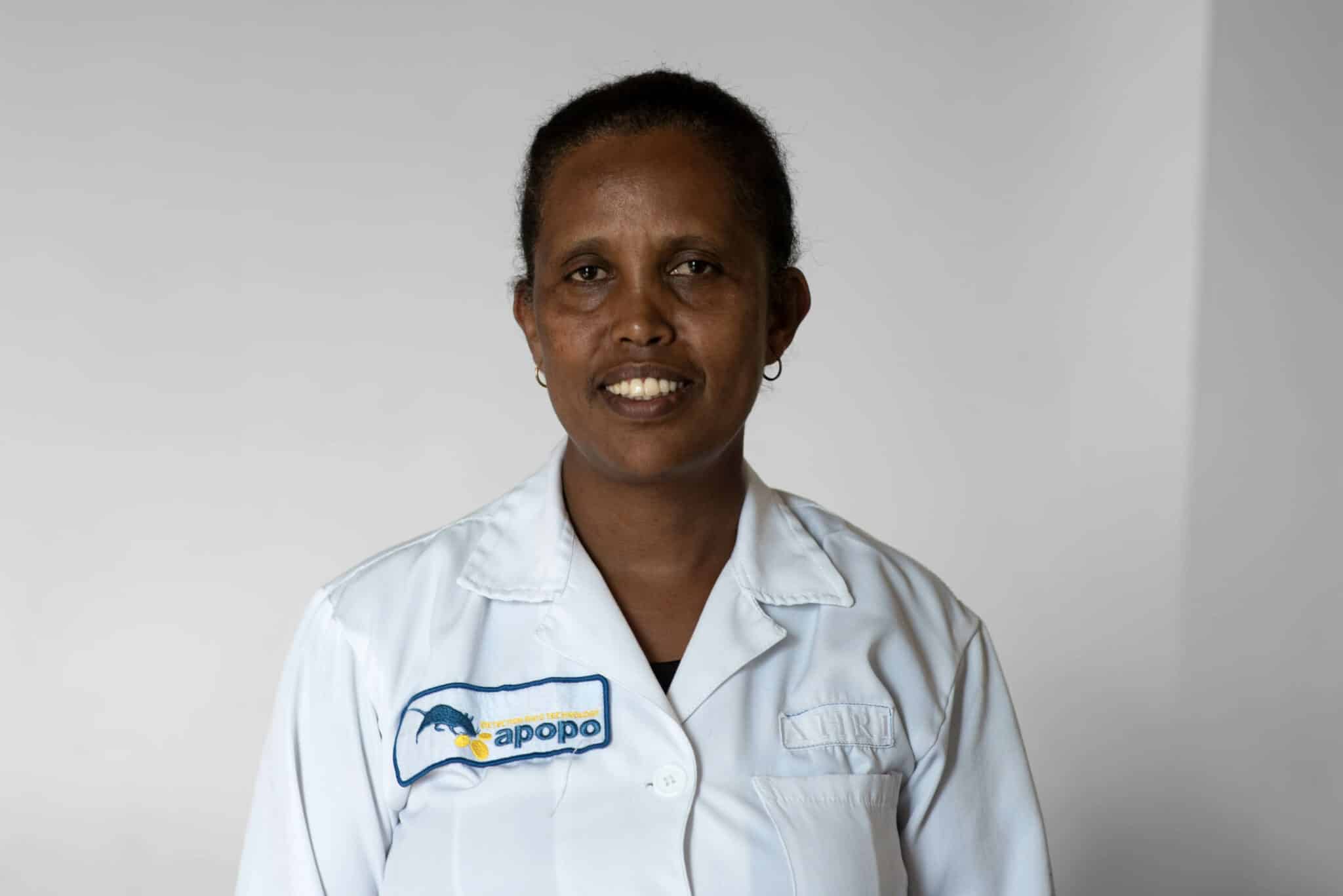
Ehitayehu has been part of APOPO’s mission in Ethiopia since 2017, serving as a junior researcher and laboratory technician. She previously worked at AHRI and her journey with APOPO began with a fascination for our innovative approach to tuberculosis detection using trained rats. “I heard about APOPO from the program manager when he was presenting the project. I was working at AHRI on another project and was surprised how rats can identify a disease,” she explains. “I knew that rats can be used for different types of medical research but never heard before about rats detecting TB. So, I happily joined the research program.”
Ehitayehu’s role involves a meticulous daily routine that includes preparing rat-positive samples for analysis, conducting microscopy confirmations, and reporting confirmed TB cases. Her work is crucial in identifying TB cases earlier as APOPO’s rats can analyze 100 samples in less than 20 minutes. Using traditional laboratory analysis it takes around 5 days to check the same number of samples. “The research project has received admiration from different stakeholders,” Ehitayehu proudly says, reflecting on the impact and recognition her work and the project have gained. This admiration is not just from within the scientific community but also from national and international officials, which is a sign of the global significance of the project’s efforts.
Despite the challenges often faced by women in science and technology fields, Ehitayehu mentions no specific obstacles in her path, instead focusing on the positive aspects of her experience at APOPO. She believes that women’s patience and ability to encourage their colleagues are beneficial traits that contribute to the team’s success. “Women are more patient than males, and we keep on encouraging our male colleagues for timely and efficient completion of the tasks at hand,” she explains. Her advice to young girls interested in science is both simple, encouraging them to see beyond the complexities of the field to the profound impact they can make. Ehitayehu sees a future in which women’s contributions to science and humanitarian work are increasingly recognized and valued, driven by the collective effort and achievements of women in these critical fields.
Hajera: From Rat Handler to Lab Technician
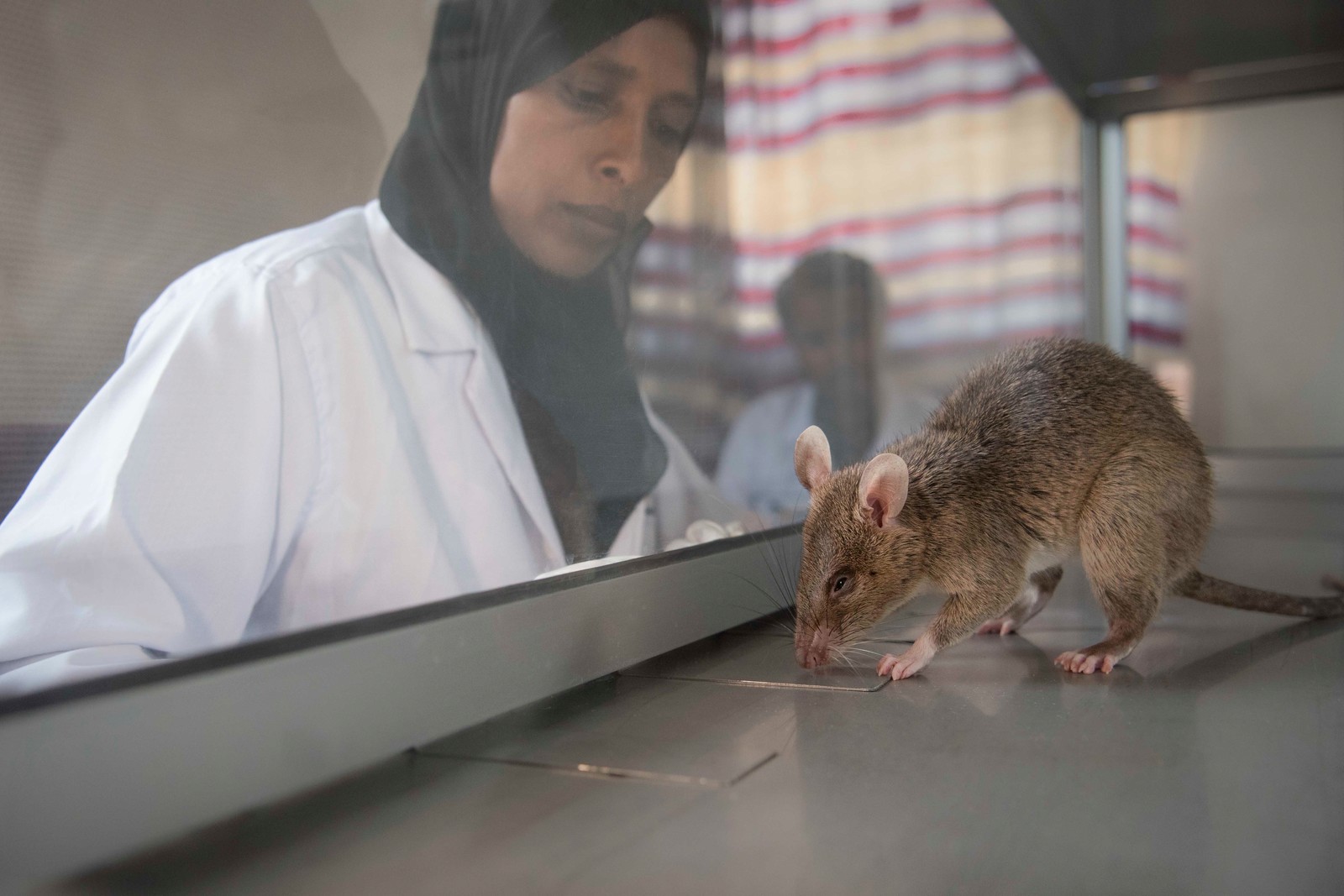
When Hajera began working at APOPO seven years ago she was hired as a rat handler after a period of training at APOPO’s operational headquarters in Morogoro, Tanzania. She was drawn to APOPO by a vacancy advertisement and in April 2021 she was trained up and promoted to her current role as a laboratory technician.
Her new role plays an integral part of the TB detection process at APOPO in Ethiopia. In her daily work she handles tasks ranging from sample reception to conducting GeneXpert analysis with a meticulous eye. This highly skilled analysis process provides laboratory confirmation of the rat’s positive indications of TB in the samples they are given. Hajera believes that being focused is particularly important for the work she does. “Although being a woman is not absolutely necessary to be a lab technician, I am personally very attentive and always very focused on my job,” she explains, adding that, “This job involves teamwork and everyone should be active and vigilant.”
Hajera takes pride in her work, particularly in the innovative use of rats for TB detection, a sentiment echoed by her family’s pride in her achievements. Offering advice to young girls interested in science and technology, Hajera emphasizes the value of sharing experiences and the importance of being interactive in their learning journey. Her final piece of advice is for families, “send your daughter to school!” she insists. We couldn’t agree more.
Grateful for all of APOPO’s Wonderful Women
On International Women’s Day, APOPO thanks all the women in our teams in Ethiopia and around the world. Their knowledge, skills and focus are key to the success of our work. By including women in every role, from the lab to the field and beyond, we prove that diversity and the female touch makes us stronger. To all our female staff, we appreciate your dedication and the difference you make every day.
APOPO TB Ethiopia is deeply grateful to the health authorities and all partners for their continued support.
